Why is it that optical interconnects require so much less power than electrical ones?
update from comments:
This question was prompted by this video. The speaker shows a table at 50:43 that indicates that optical interconnects require much less power for the same port speed. He also mentions at other points in his talk that photonic integrated circuits require less power.

Description of the video:
Published on Dec 27, 2013
(Visit: http://www.uctv.tv/) Photonics has transformed our work and, indeed, our lives, by enabling the Internet through low-cost, high-capacity fiber optic transmission. In data centers, photonics is replacing electrical cables, thereby allowing for higher and more economical performance. In his talk, John Bowers, professor of electrical and computer engineering and materials, discusses the evolution of photonics and what the future holds for this technology. Recorded on 10/3/2013. Series: "Institute for Energy Efficiency" [12/2013] [Science] [Show ID: 25995]